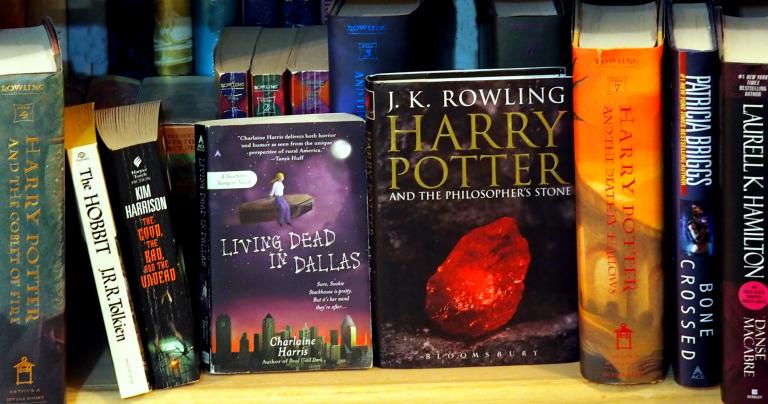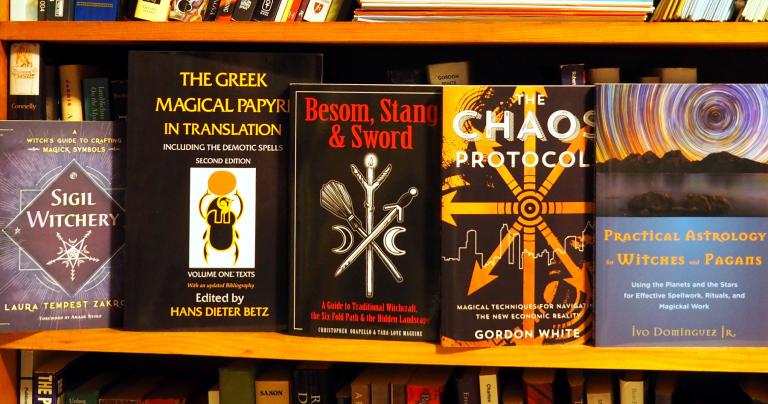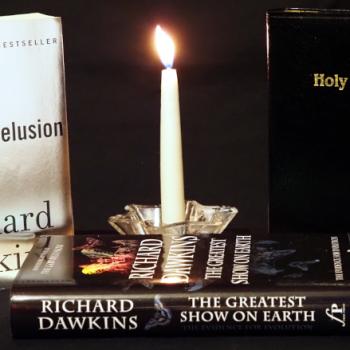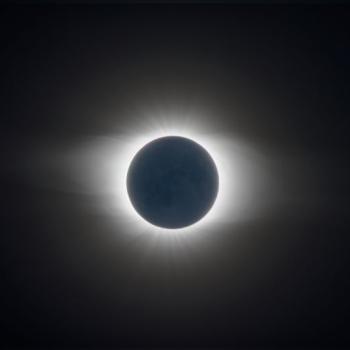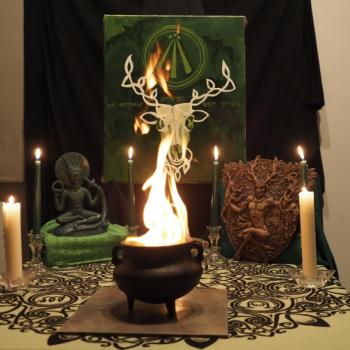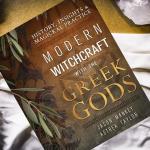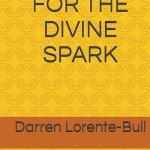Good magical fiction is more than mindless entertainment – it’s also inspiring. You read about fictional witches and while you know you don’t have their power, you’re still motivated to get back to practicing the witchcraft you can do. Last year I wrote 12 Movies to Inspire Your Magic. It covered the films I watch when I need some inspiration, as well as a few more that you might think would be inspiring but just don’t do it for me.
The bottom line is that I love magical fiction. Books, movies, and TV shows: if it has witches and magic in it – and if it’s a good well-told story – I’m there.
But there is one near-universal theme in magical fiction that I absolutely despise. It promotes a false sense of superiority among too many real magicians, and as a plot device it’s old and trite.
It’s the idea that magic is hereditary. People are either born witches or they’re not. Or worse still, witches aren’t entirely human, and they live in their own world – Harry Potter, I’m looking at you. If it was one or two or even half the stories I’d be fine with it. But it seems like it’s every single one.
I know there are exceptions, and I’m not looking for a list of recommendations. But far, far too many fictional witches, wizards, and other magicians were born that way, and that’s a problem.
Good fiction starts with a foundation of fact
“Why does it matter? Just enjoy it.” That’s a fair point, and I may have said that to the people complaining about the Satanism in The Chilling Adventures of Sabrina. But the more you know about something in real life, the more it bothers you when a book or a movie gets the details wrong.
I have friends who are costuming experts who become apoplectic when a movie costume is 20 years out of date for the time period. I don’t shoot much anymore, but I still get annoyed when someone fires a high-powered handgun and there’s no recoil. One of the reasons the Pirates of the Caribbean movies were so good was that they got so many details right about the golden age of piracy (1650 – 1720), especially the nautical jargon from the era.
Enjoying fiction requires the suspension of disbelief. When we don’t have to spend any energy disbelieving incorrect facts, we’re better able to immerse ourselves in the fantasy.
All magicians are human
History has a long list of witches and people with the misfortune to be mistaken for witches – all of them were human. The mages and wizards of medieval lore? Human. Today’s traditional witches, Wiccan witches, and basic witches? All human. So why do so many writers make their witches other-than-human?
This isn’t to say that Tolkien was wrong for creating a universe with elves, dwarfs, hobbits, wizards, and humans – he wasn’t. But creating a mostly-new universe is one thing. Dropping a whole new class of beings into our world is another. At least vampires and werewolves began life as ordinary people.
A new class of beings isn’t wrong in and of itself. Stan Lee did a great job of exploring othering and alienation with the X-men and other superheroes.
But when virtually every single witch, wizard, and magician in magical fiction is more-than-human, it gets old. And it makes even the best stories less inspiring than they could be.
The allure of the lost princess
At one point or another, I think all of us have thought “I don’t belong here.” We dream of a royal envoy showing up on our doorstep and saying “I’m so sorry, but there was a mix-up at birth. You’re really a princess and I’m here to take you away from all this.”
I have a friend who was 10 years old when her parents had a nasty divorce. She said “as I got close to my 11th birthday, I just knew my letter from Hogwarts was going to arrive any day.”
The near-universality of these dreams make them an easy target for writers. They’re pleasant and relatable fantasies. But none of us really are the lost child of Bill Gates – it would be good to show us another way out of our unpleasant situations.
The impact on real magic
I still hear witches and Pagans talk about their “family trad” and how their grandmother was a witch. I’m sure a few of them are telling the truth. But most of those grandmothers are safely dead where they can’t smack anybody for besmirching their reputation as a good Christian. And I still hear people claiming to be a “natural witch” and that if you aren’t born with magic you’ll never be able to do it very well.
Of course, that’s not much different from people who take DNA tests and decide they’re now a Heathen because some of their ancestors came from Scandinavia, never mind the fact that a lot of those Scandinavian ancestors were Lutherans.
Your ancestors are worthy of honor because of what they did, not because of what they were. Religion is about what you do and whose you are, not what you are. And magic is about creating change in accordance with will, which is the birthright of all people, not just a few.
There’s what you’re born with, and there’s what you do with what you’ve got
Magical ability is like athletic ability or the aptitude for math. Most of us can do it, but a few people can do it really well, and a few can’t do it at all. And whatever our skill level, it can be improved with practice.
Hang out in Pagan and magical circles for very long and you start to see this. There are people with tons of talent who never work at it – they can do some magic, if they will. There are those who have a little talent but put a ton of work into it – they can do a lot. And then there are a few folks who have tons of talent and work diligently for years to refine it. They can do some truly amazing things… except you rarely hear about it, because they don’t want the attention.
Harry Potter showed witches and wizards advancing from grade to grade. The better urban fantasy series show their main characters learning and growing from book to book. But even with that, we get the equivalent of watching LeBron James go from high school phenom to NBA rookie to finally winning a championship in Miami. Every. Single. Time.
Everyone has to start from the beginning
And LeBron James is human. We never see him doing hour after hour of conditioning work, weight lifting, shooting drills, and free throws. We don’t see the careful attention to nutrition it takes provide enough calories to fuel his activities and still maintain an ideal body weight.
I know – routine work is routine and boring. There’s a reason J.K. Rowling didn’t give us a whole semester’s worth of lectures from Defense Against the Dark Arts. But I want to see a story about a young witch who separates themselves from their peers not because they’re born with LeBron-level magical talent but because they work and study and practice and screw up and clean it up and keep at it.
Some of us have more magical talent and some have less, but there are no shortcuts. Do the work or you won’t be able to do the magic.
The stories we’re missing
I’ve had enough “you’re a wizard, Harry!” stories. I want a story of a young person who sees witchcraft as way out of a bad situation and who starts trying to learn it on their own. Make the witchcraft as fantastic as you like – but show us how they manage to study and practice while hiding it all from their fundamentalist parents.
Or better yet, a story where their parents find out, see the truth, and stop being fundamentalists (talk about fantasy…).
I want a story of someone who says “there has to be more” – who then goes and finds it.
I want a story about a middle aged person who decides to become a witch and has to balance it with career and family obligations. Or about someone who retires from a perfectly ordinary job, has an ecstatic experience and becomes a Druid when they’re 70.
I want a story that features an older apprentice and a younger mentor. I was 41 when I joined a magical group for the first time – the primary leader was 22. It felt odd, but she knew a lot more about magic than I did, and I wanted to learn, so I paid close attention.
I get the attractiveness of stories that say “you’re special” and “you don’t belong in this awful world.” I enjoy many of them.
But is it too much to ask for a few stories where the magic is fanciful but the magicians are ordinary people? Ordinary people can do extraordinary things with hard work and perseverance… and with a bit of magic.


